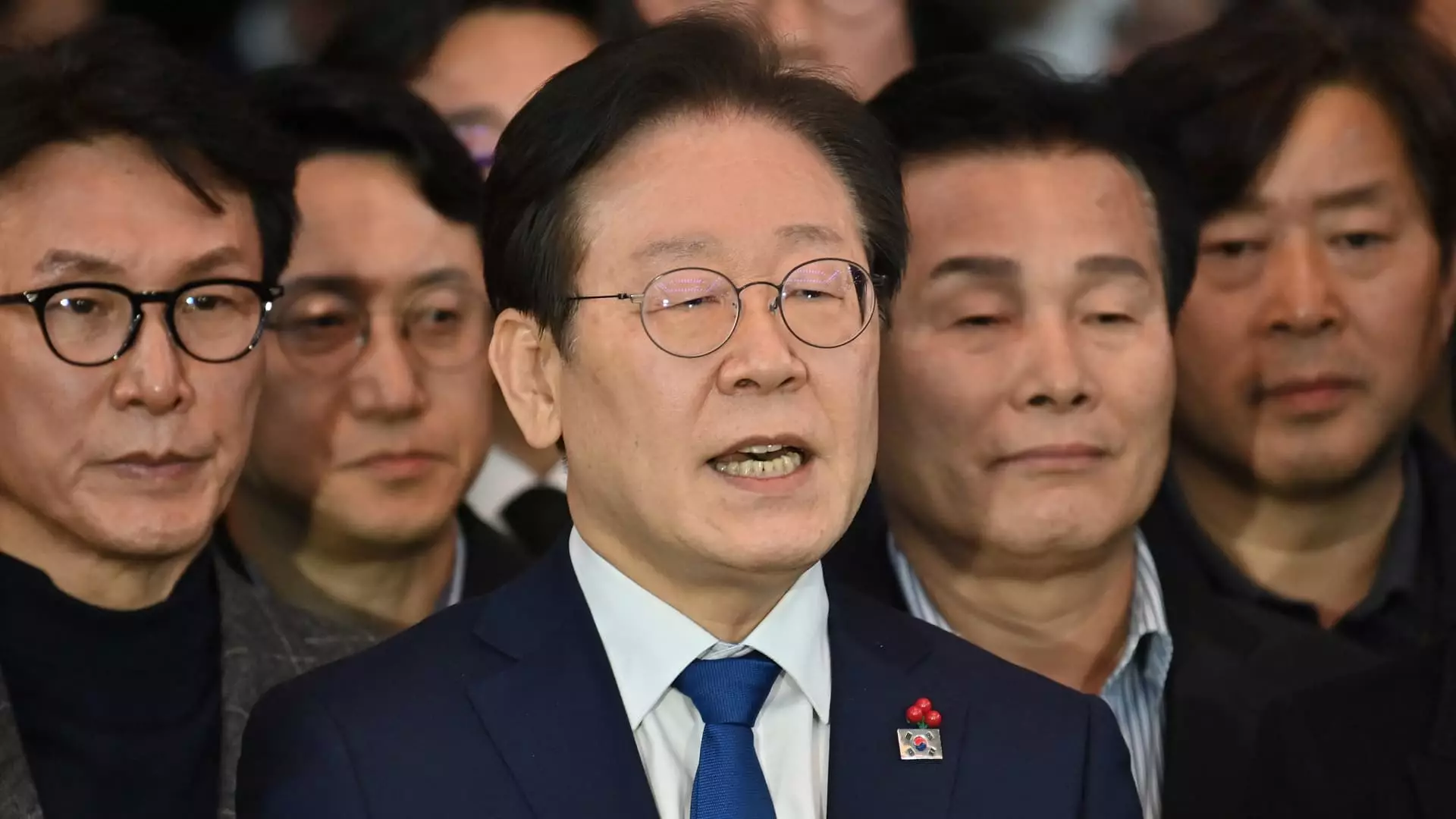In the whirlwind of South Korean politics, presidential contender Lee Jae-myung is steadily emerging as a voice of pragmatism amid uncertainty. With the country grappling with the complexities of trade tariffs and diplomatic relations, Lee’s remarks resonate deeply. As the June 3 electoral date looms ominously close, he underscores a critical point: the deadline set for negotiating trade tariffs with the United States should be flexible. This perspective is particularly vital as it aligns with a larger vision of mutual benefit—a principle that seems to be overlooked in the haste of political dogfighting.
The current situation is dire. The incumbent, Yoon Suk Yeol, was removed from office following reckless decisions that invoked martial law, leaving the nation in a state of disarray. In this context, Lee is not merely a candidate who is seeking votes; he embodies a desperate challenge for South Korea to regain its footing in a rapidly changing political landscape. He boldly states that if a deal is structured in favor of one party to the detriment of the other, it veers away from diplomatic engagement and dips into the territory of exploitation. In an increasingly interconnected world, it is vital for Lee to frame these negotiations as a collaboration instead of a zero-sum game.
Addressing Economic Concerns
What stands out in Lee’s agenda is his urgent call for an augmented economic strategy tailored to reignite growth. His assertion that the South Korean government needs to establish an extra budget speaks to the underlying economic malaise that threatens ordinary citizens. The acknowledgment that “there is not much time” hints at the crisis-like atmosphere that surrounds the nation—an environment stifled by hesitancy and delays, mainly due to the ongoing electoral process. Here, Lee showcases his adaptability as a leader willing to formulate immediate, actionable plans rather than hiding behind grandiose statements.
In times when conservative policies have led to stagnation, Lee’s approach pushes for resolute fiscal measures, a refreshing change from Yoon’s rigid policies that led to economic anxiety and political division. He not only stresses decisive actions, but he does so with the intention to restore confidence among foreign investors—an element crucial for revitalization. This forward-looking perspective indicates his intention to bridge the gap between economic plateaus and innovative solutions.
A Pragmatic Approach to North Korea
When it comes to the persistent tensions with North Korea, Lee walks a fine line. He displays a keen understanding of the importance of robust defense mechanisms while simultaneously advocating for dialogue and diplomacy. His criticism of Yoon’s administration conveys a thoughtful discontent; the former president’s hardline approach only exacerbated tensions and isolated South Korea further. Lee’s philosophy leans toward diplomacy—not merely for show, but as an actionable framework for coexistence that respects both sides’ needs.
This balanced stance reveals an astute awareness of the geopolitical complexities within the region. By emphasizing both strength and dialogue, Lee proposes a dual strategy that could appeal to those weary from the anxieties of militaristic posturing. Importantly, Lee recognizes that ego-driven diplomacy often breeds conflict, a narrative that he seeks to dismantle throughout his campaign.
The Pulse of Public Opinion
As he continues to lead in the polls, Lee Jae-myung captures a significant demographic that craves sanity amid chaos. With 45% approval ratings, he offers a stark contrast to his conservative challenger, Kim Moon-soo, whose support lingers at 36%. Yet, even amidst the favorability, Lee remains acutely aware of the shifting sands beneath him. He addresses his recent dip in popularity by focusing on the principles of integrity and leadership, suggesting that with unyielding confidence, the citizens of South Korea will undoubtedly reject those embroiled in controversy—specifically hinting at Yoon’s martial law debacle.
Lee emerges not only as a candidate but as a harbinger of hope for a nation ready to steer away from divisive politics towards a more constructive future. His charge for diplomacy and economic revitalization could well serve as the bedrock upon which South Korea re-establishes its role on the global stage.

Leave a Reply